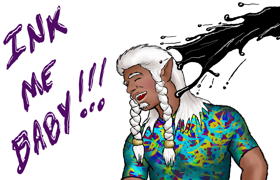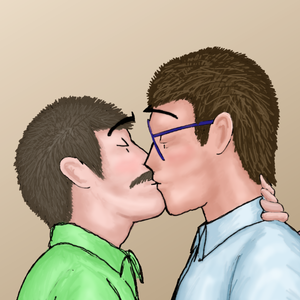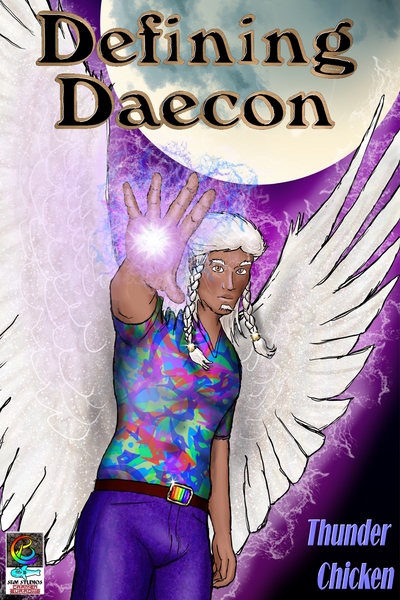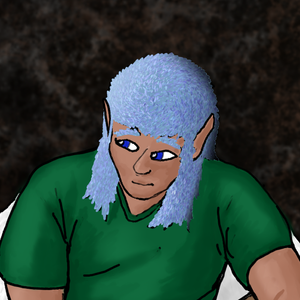Note: This chapter has been split into two pieces in order to fit Tapas guidelines on episode length. Be sure to continue on to the next page to read the whole thing. This is part 1 of 2.
Oh, bless his heart, as dumb as I was Owen continued his attempt to explain this to me:
"When a person does not use a part of their body they can lose the ability to use it. It’s called ‘atrophy’. In simpler terms you can think of it as ‘Use it or lose it’. But it’s rarely permanent, unless the loss of use is caused by disease or age. That piano or guitar player will quickly regain his skills if he starts playing regularly again, unless his loss of skill was caused by dementia or arthritis in his fingers. The body builder will put on muscle mass and regain his strength if he starts lifting weights again. I think your wings are the same way. You have not used them for 25 years. Not only has your body – both your brain and your muscles – forgotten how to work those wings, but it has never really known how to begin with. It’s starting from scratch, just like when you learned to walk as an infant, building the pathways and strengthening the muscles. A person’s mind has a built-in map of his body, and your mind has just discovered a previously unmapped area, kind of like European human settlers discovering North America. It was always there, but they didn’t know about it. Once they discovered it they quickly learned to make use of it. Your mind is now discovering your wings and it’s making the connections. The wings were always there, the brain only just figured that out.”
Help me God, this was finally starting to make sense to me. Sort of. “I think I understand it now. But why did the wings pop out by themselves when I was falling?”
“Again, they were always there, your conscious brain just didn’t know it. The answer, I believe, is reflexes. Your brain doesn’t have to be aware of something in order for reflex to kick in. Reflexes are nature’s way of preventing us from really hurting ourselves. They offer a split-second reaction before the brain figures out what’s happening. If you burn yourself you’ll pull your hand away from the flame before your brain processes the situation. If an insect bites you, you slap at it without even thinking. Those are examples of reflexes. Your wings did the same thing as you were falling earlier today. You were in danger of dying, and your subconscious mind deployed the wings in order to save you. Unfortunately, your subconscious mind didn’t know how to do anything more than to deploy them. It could not control them, so as soon as your conscious mind took over you fell. Thankfully by that time you were well out over the lake, so you survived. Similarly, reflexes caused you to feel pain just now when you landed on them, and reflexes caused you to pull the wing away when I yanked at that feather. That is spectacularly good news! It means that the neural connections are being made!”
I thought about this and was starting to feel excited. I still had one question, though.
“Wait. How could they have always been there? Look at the size of them! How could they have been hiding under the skin on my back all that time!
Owen laughed. “I’d like to be able to explain it fully to you, but that’s above my pay grade. I somewhat know the mechanics of it, but I am unsure of how to explain it. I can say this: It’s a combination of magic and the mundane. A on oversimplified explanation is that they’re inflatable.”
“Inflatable! But how?”
“Have you ever watched a nature film and seen how insect wings work? When the insect emerges from its pupa the wings are tiny and shrivelled. The insect ‘inflates’ them by pumping fluid into them. Your wings work the same way, except that with an insect it can take hours, while for us it is instantaneous. Most of your body works that way, in fact. That’s how I, a relatively small man, can shift into a huge bear. You rode on my back. Didn’t I feel solid to you?”
“Yes, you sure did. I was wondering about that. So you’re basically just a bunch of fluid filled tubes when you’re a bear or bird?”
Owen laughed. “Not exactly, but close. That’s the magical part of the equation, the part that I can’t explain how or why it works because I don’t really know myself. We can inflate and deflate ourselves on the cellular level. Some of us can make ourselves larger, like I do as a bear. Some can make themselves smaller, like a shifter whose alternate animal is a house cat or even a mouse. The magic also takes care of your clothes. When you finally do make your wings disappear your shirt will bear no holes or damage, and when you do a complete transformation your clothes will disappear while you are in animal form. They will reappear when you retake your human form. Don’t try to think of the physics of it; magic does not care about physics.”
"But you just said that my brain has to learn how to use my wings. How does it do that if they’re magic? For that matter, how would I change into a bird or whatever if it’s magic? How does the brain learn that?”
“Once again, you’re going outside of my realm of knowledge. I know the mechanics of it but not the magic behind it. They taught us the very basics of the magic in school, but they didn’t teach us the how or why. I know that our brain controls the fluid that inflates the cells, and I know it does it through magic, but that’s about it. We just think about what we want to be, and we become it. Oh, and I also know that the brain also controls the texture of those cells once inflated – it can make them as hard as bone or as soft as feathers. The ability to do this is hard wired into your brain, as you discovered when you sprouted those wings. This ability has atrophied in you because you went so long without using it, so now you’ve got to teach yourself again how to use that power. I’m thinking that atrophy may be the explanation behind your extra limbs. Your subconscious did not fully know how to do the magic. Now that it is building those pathways you will soon be able to control those wings, and then, eventually, your transformations.”
“I’ll never be able to do that! I wouldn’t know how!”
“Yes, you will. Remember what I told you, about most of our people gaining their abilities before they could even walk? Your brain is already rebuilding the pathways. In just a few hours you’ve already started regaining feeling in them. In a few more I wouldn’t be surprised if you could move them just like you do with your arms and legs. Once you have them fully mastered you’ll have full control over every feather, which will be needed for flight. And after you have using them figured out you can start working on shifting properly.”
I was actually starting to feel a little bit optimistic, even if I didn’t see how I could possibly master the use of wings that I didn’t even know I had. And shifting my whole body into the shape of a bird? That was even more difficult to believe. Still, I had watched Owen do it several times already. Until a few hours ago I never would have imagined any of this would be possible.
I thought about something. "So does any of this hurt?"
"No", Owen said. "You don't even feel it when you shift. Did I look like I was in pain when I was shifting between a bear, an eagle, and a human just then?"
"No, you didn't, but when these wings on my back first appeared it hurt like hell. I honestly thought that hillbilly dude had shot me in the back."
"Hmmm..." Owen said as he considered this. "I honestly don't know why that would have hurt. I've shifted millions of times, and so has everybody that I've ever known, and I've never heard anybody say that it hurt. I... well, I suppose that could be atrophy as well."
"What do you mean?"
"Well, think about when you've spent a long time sitting still, or better yet, sitting on your leg. If you suddenly move that leg after a long period of inactivity it is going to hurt like hell, and it will probably be numb. I think that's probably what happened with your wings. Twenty five years of inactivity, and then pressed into use suddenly like that, it's no wonder that it hurt. Probably even worse for you, since instead of modifying your existing limbs you grew a complete extra pair. That's a lot of stuff to be moving around!"
"Ok, I think that makes sense. You're probably right", I said.














Comments (14)
See all